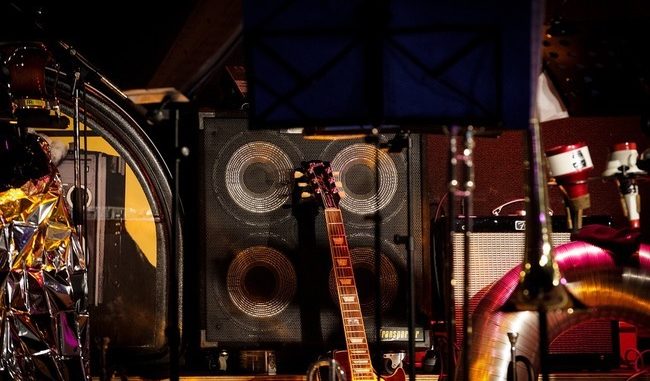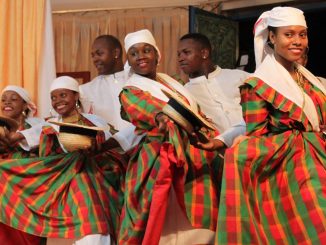
30 or 40 years ago, “Chanté Nwèl” (Sing Christmas) consisted of going from house to house in the neighborhoods where we lived, singing songs about the birth of Jesus, clapping hands, banging on pots and pans, etc. This itinerant delegation was well received by the neighbors, who did not hesitate to serve punch, black pudding, Christmas ham – in short, all the typical dishes of the holiday. Arguments between neighbors were forgotten on this occasion, and a fresh start was made. Christmas, a feast of sharing and forgiveness…
Families with musiciens sat on their terrace or in their living room to sing these Creole or French songs, celebrating the Child Jesus or scenes of life during this festive period.
From the 1990s, this “good natured” and spontaneous celebration in the “lakou”, neighborhoods and homes was replaced by real orchestras made up of male musicians and female singers and dancers. Music became more rhythmic, with biguine and zouk ; brightly-colored costumes, hairstyles and make-up became essential to the beauty of the stage show.
Over the years, the number of bands specializing in “Chanté Nwèl” that are formed only during the Advent season has multiplied. It must be said that, under these conditions, singing Christmas carols even when you do not believe in God, when you do not really know who Jesus is and when you never go to mass, has become a real business, and in just one month, these bands can collect a real jackpot. Moreover, some twenty years ago, every town hall or municipality organized its own “Chanté Nwèl”, but budgetary restrictions have reduced these concerts…
However, the customers of these musical bands are mainly local authorities (towns, urban communities, regional council, departmental council), large companies, shopping centers, etc. They have to pay from 5,000 euros (and much more for very well-known bands) to hope to get one of these bands on a stage ; the crowd does not pay to attend the show, but organizing a “Chanté Nwèl” is also a way of enhancing your communication by having (we think) the Baby Jesus on your side.
The Church, for its part, tends to hail the strong enthusiasm shown by Guadeloupeans and Martinicans in these pre-Christmas concerts, they would demostrate a vitality of the Christian faith.
But how many people are aware that “Chanté Nwèl” are first and foremost “religious” concerts? After all, it’s about celebrating the birth of a child – Jesus – who is the Saviour sent by God… Of course, we are happy, we celebrate this coming with song and dance. On Christmas Eve, some people focus primarily on food and preferably alcoholic beverages to show their joy… And then we also want to celebrate the end of a year and look forward to an ever-better New Year…
Over the years, traditional carols have given way to musical compositions by bands. These new songs certainly demonstrate the creativity of the artists, but we realize that many of them have double meanings and sexual connotations. Titles often speak volumes…
If you denounce this fact, you take the risk of being told that you have a “swampy mind” or too much imagination…
During “Chanté Nwèl” shows, some people in the crowd do not hesitate to add vulgar, below-the-belt lyrics to these new compositions, this is proof that the composer’s message was received positively… Others do not dance in a “respectable” manner, as we see men and women pressed up against each other and rubbing their intimate areas…
Do the songwriters ignore the “religious” or family aspect of “Chanté Nwèl”? In order to make them popular, do they think it’s absolutely necessary to include sexual allusions that inevitably lead to scenes of drinking and debauchery?
One explanation for these behaviours might be confusion between the religious holiday, Christmas, and the pagan holiday, Carnival. The proximity of these two moments of joy has finally erased all frontiers. Note that the carnival period begins on January 1 and ends on Ash Wednesday in Guadeloupe and Martinique. It happens that some CDs by “Chanté Nwèl” bands include carnival tracks…
It is clear that the world of “Chanté Nwèl” in Guadeloupe and Martinique needs to be cleaned up. Are musicians and audiences ready to establish rules of good behaviour at these concerts that bring together the whole family, or do we have to wait for divine intervention?



